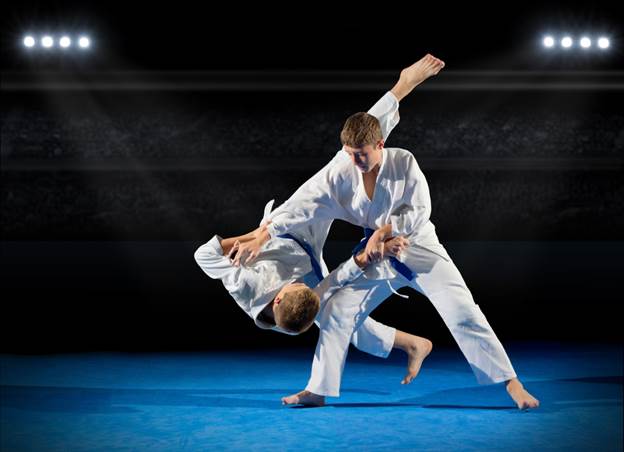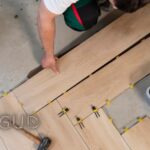When the majority think of Chapel Hill in North Carolina, they picture a beautiful academic city with unrivaled streets and vibrant culture and, of course, the monumental University of North Carolina. However, underneath the lecture halls and basketball courts of UNC Chapel Hill, lies a rich domestic tradition that is often neglected, that of hand-to-hand martial art practices which fosters discipline, creativity, and culture all into one.
For years now, martial arts have integrated into the culture of Chapel Hill community. The quiet town has come to a slow yet powerful change over the years. What started out as get-togethers in community centers and university basements has now transformed into gyms and dojos that teach everything from hybrid MMA to traditional Japanese Karate. In this community, martial art is much more than just a hobby. It has become a way of life, a means of self-discipline, exploration, and a uniting factor for all age groups.
This article focuses primarily on the journey of martial arts in Chapel Hill region, from the early 1900s up until now and its growth into a prosperous community. If you’re an avid black belt or just an interested individual wondering how this small town evolved into a prime location for martial arts, this is the perfect place.
Early Beginnings
According to Ligo Dojo of Budo Karate, the practice of martial arts began to be more popularized in the Chapel Hill area in the 60s and 70s. This was around the time when Eastern practices and philosophies were coming into the United States. With the growing interest in Asian culture, which was fueled by Bruce Lee and the opposing counterculture movement, martial arts schools began to pop up in the Triangle area, which encompasses Chapel Hill.
The earliest dojos were quite simple, located in community centers, the basements of universities, or gyms that had been rented out. They concentrated mainly on teaching Shotokan Karate, Judo, and Taekwondo, which focused on discipline, self-defense, respect, and tradition.
University Influence
Martial arts in the region had already gained some popularity and UNC-Chapel Hill was one of the bigger contributors. With the introduction of student organized clubs and instructor led sessions, younger generations were now being taught various forms of martial arts in the form of club activities and physical education, some lessons being offered at the university level. This eventually led to the creation of many arms of the universities affiliated clubs, some which still stand to this day.
In addition to fitness, these university programs helped cultivate an appreciation for the Asian culture through its philosophy and etiquette.
Growth in the 1980s and 90s
The increase in interest resulted in the establishment of numerous martial arts schools in Chapel Hill. By the 80s and 90s, residents had access to a wider range of styles including Brazilian Jiu-Jitsu, Kung Fu, Aikido, Muay Thai, and Capoeira. This slice of history also saw the emergence of martial arts centers focused on teaching discipline and confidence in children, while also offering fitness and self-defense training for adults.
Local instructors during these periods either trained directly under renowned martial artists or traveled around the world to learn authentic techniques and traditions. This enabled Chapel Hill to gain a reputation for having quality instruction over a multitude of disciplines.
The Modern Era
Now, Chapel Hill hosts a fully-fledged martial arts community which vividly showcases the blend of cultures and progress in the town. The dojos that specialize in traditional practices from centuries ago are accompanied by modern self-defense programs, MMA gyms, and the ever-evolving martial arts scene. While expanding, the core values of respect, perseverance, and self-improvement have not been forgotten.
Numerous local educational institutions have adopted a holistic methodology, focusing on meditation, yoga, and other forms of physical fitness. Some have even branched out into competitive fighting or cross-training with different sports. Adaptability has also become an important focus, with programs designed for women, children, seniors, and persons with disabilities.
Legacy and Community Impact
For years, the martial arts classes offered in Chapel Hill, NC have done more than create fighters; it has fostered a culture of strength, respect, and discipline. These dojos and gyms have long done more than teach people to punch or to train; they serve as places to develop personally or learn about different cultures, communities, and grow.
With such a staggering amount of knowledge and culture in one region, it is no wonder martial arts have found a deep connection in the region. Many local instructors not only participate athletically; they also engage as scholars, artists, and educators. People appreciate martial arts for being equally mental, spiritual and requiring physical aptitude. From young children practicing focus and self-control to college students looking to relieve some tension through self-defense, and older adults who seek strength and balance, this martial arts community welcomes everyone.
The future of martial arts in Chapel Hill seems bright as ever with new generations taking over today. These practices continue to be central to the town’s identity for its emphasis on inclusion, wellness, and tradition. Whether done on tatami, in a boxing ring, or out in the park, martial arts continue to impart invaluable lessons which transcend far beyond the dojo.
Thus, the next time you drive by a martial arts studio in Chapel Hill, understand that beyond the walls of those studios lies more than a mere workout but rather an opportunity to continue a legacy while celebrating discipline. It is a space where people from all walks of life work together to learn and grow and connect through the art of combat and character.







